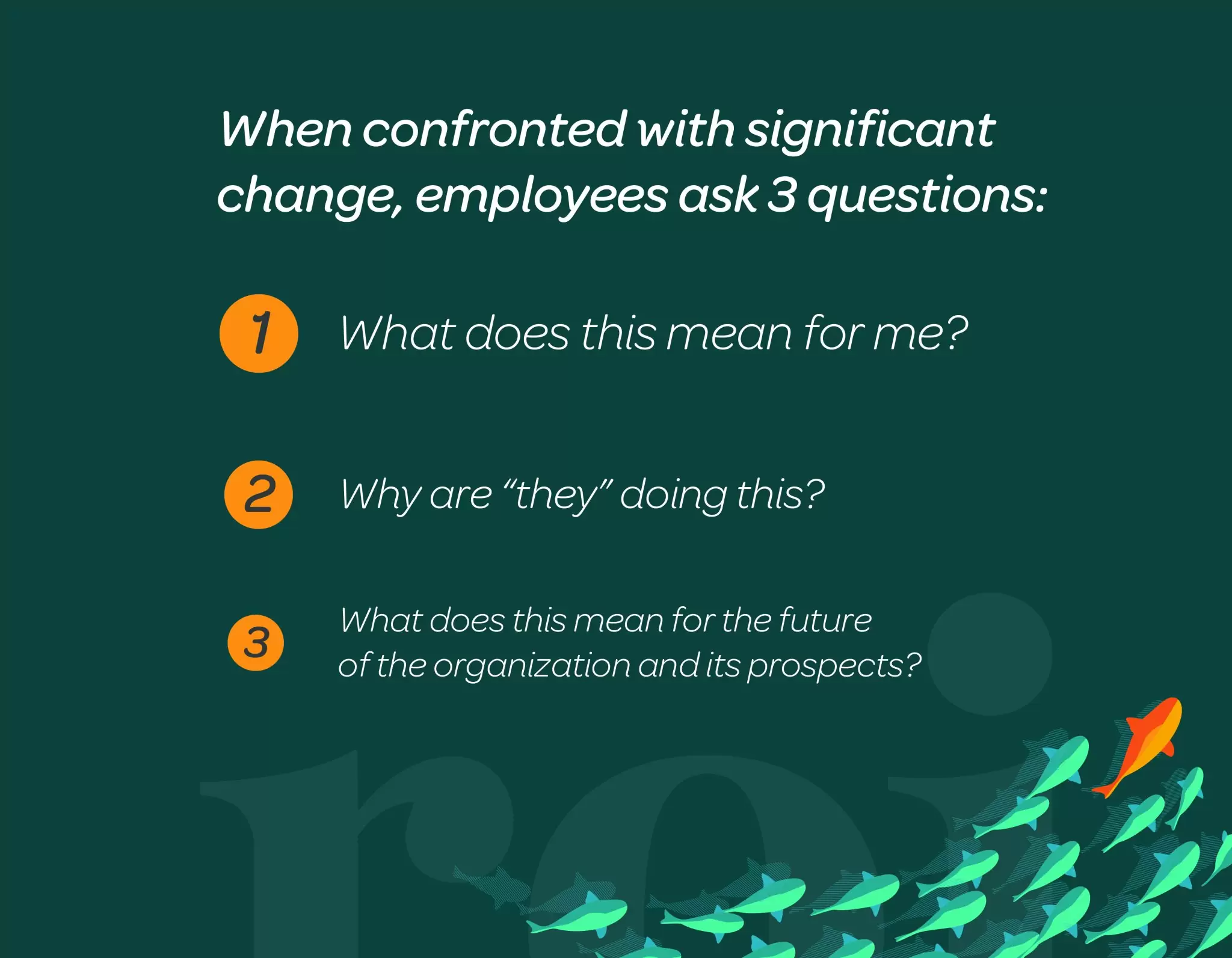
Anxious About Your Company’s Future? Look To Your Culture
March 17, 2023
Egregious examples of “digital firings” are making news daily. One company recently carried out a major job reduction by notifying employees that they should check their email in the next hour to see if their job had been eliminated. They were told that their manager would have further details and answers to their questions. In fact, the managers were clueless because they hadn’t been properly briefed beforehand.

In the ongoing tension between marketplace demands and finite company resources, C-suite teams are making difficult choices. The obvious test is how well they make and execute those choices.
That tactic in which employees are notified by email that their jobs are being eliminated speaks volumes about a company’s true culture. Unfortunately, this is not an isolated incident in today’s uncertain economy.
Unexpected budget cuts, required headcount reductions or unforeseen downsizings can unsettle any organization. The obvious cause of such measures is the uncertainties of the post-pandemic economy. But there’s also something else in play. Namely, the culture of your company and what it reveals about leadership values and styles, not to mention how you might be treated if the economy worsens.
In the ongoing tension between marketplace demands and finite company resources, C-suite teams are making difficult choices. The obvious test is how well they make and execute those choices.
Ultimately, culture has a direct impact on three vital corporate issues:
- How an organization perceives and responds to essential needs for change
- How transparently it communicates with its various stakeholders
- How it treats the people it employs—especially during uncertain times
Culture: The Way We Do Things
At first glance, corporate culture looks like a slippery abstraction. But in reality it’s no more than “the way we do things around here.” That pragmatic definition encompasses everything from an organization’s vision and values to its most important operating principles and policies.
A compelling insight is provided into the impact of culture on change and decision-making in the January/February issue of The Atlantic. With the provocative title “The Eureka Theory of History Is Wrong: Why the Age of American Progress Ended,” author Derek Thompson argues that successful change is not a result of a blinding flash of insight, a sudden epiphany or a breakthrough innovation.
Instead, he says that progress, the successful resolution of thorny institutional problems, is a process that usually takes place over periods of time, requiring painstaking — and sometimes painful — deliberations along with time-consuming persuasion to convince the skeptics. Where progress fails, he says, resistant, dysfunctional cultures are usually the cause, with the naysayers and skeptics carrying the day.
Perhaps the poster child for such naysayers resides in my hometown of Rochester, New York. Eastman Kodak once practically owned the photo business, employing some 65,000 people in Rochester alone. When digital photography was invented, Kodak made the fatal decision not to participate, with a spokesperson noting dismissively that “they were a chemical company, not a computer company.” And so, once again, an encrusted culture laid waste to a once-proud Fortune 500 company, with a loss of over 60,000 jobs. To make matters worse, the senior executives mostly refused to discuss the matter, believing, as so many leaders mistakenly do, that silence is the wisest policy during a crisis.
Culture and Communication
Thompson is correct; culture inevitably is a powerful force to be reckoned with if progressive change is to follow. Given the array of challenges facing today’s organizations, it’s understandable that many C-suite executives are struggling with change. Yet careful priority-setting and a supporting communication strategy are all within reach of a committed team.
No question that it takes precise analysis, sometimes tough dialogue, and a fair amount of negotiation and compromise to arrive at cultural consensus, especially regarding issues like the need for transparency in decision-making. But it’s all doable given the will to act. Ah, and maybe there’s the rub. A wise consulting colleague once reminded me that, in the end, the inability or lack of will to act is poison to the best of strategies. But isn’t will simply the product of culture? If so, there’s our starting point.

At ROI we believe that positive cultures are much like a blanket on a cold winter night. They envelop and secure people. Not to isolate them from adversity or change but instead to provide an environment of common purpose.
A Case in Point
Consider a major finding from ROI’s Benchmark report that measures the trends, challenges and impacts of employee communication and its future in today’s organizations. Over 2 million employees are represented in the survey, with half of the approximately 100 participating companies employing 10,000 people or more, and three-quarters with global operations.
A quarter of respondents came from the technology sector currently experiencing what is euphemistically referred to as “right-sizing” to compensate for aggressive hiring during the pandemic. What’s notable is that 82% of senior employee-communication professionals said their responsibilities will significantly increase in the coming year from such striking changes as:
- Marketplace disruption and business transformation
- Competition for talent
- Employee burnout
- Hybrid workstyles with dispersed teams
- DEI initiatives
- Profoundly changing employee expectations leading to the so-called “Great Resignation”
A Hard Question
Facing such an onslaught of disruptive change, one would expect that company leaders would redouble their efforts to fully explain their actions to a troubled workforce, not to mention to shareholders, the media and other stakeholders. Or, at the very least, support any initiative or team that could help.
And yet, when asked in the ROI Benchmark, more than two-thirds of communication professionals in a position to help said they expect headcounts and budgets to remain the same or even be reduced!
So here’s the hard question for those C-suite leaders who have long argued that effective leadership and effective communication are inseparable, especially during periods of disconcerting change: Why this apparent disconnect between conviction and actions? In brief, why undermine the very process that facilitates and explains change?
What We Know About People and Change Communication
At ROI we believe that positive cultures are much like a blanket on a cold winter night. They envelop and secure people. Not to isolate them from adversity or change but instead to provide an environment of common purpose, one that validates their contributions and ultimately the meaning of their work lives.
A positive culture is also one that explains business strategy in terms that connect decisions to marketplace forces. In short, it connects the workplace with the marketplace, turning all eyes outward rather than inward to explain change.
There are many things we know for certain about people’s reactions to change, both from careful observation and from objective research. According to a national study by Future Workplace, 83% of HR leaders claim that positive employee experiences at work — including open and honest communication — lead to improved organizational productivity and success. A separate global study of 500 C-suite executives in the U.S. and Europe concluded that poor communication costs a company an average of $19 million annually. That number, the study says, doesn’t even consider the monetary impact of poor communication on productivity and employee attrition.

From both our research and sheer experience in hundreds of communication assignments, we at ROI know that employees have three fundamental questions when confronted with significant change. Most importantly: What does this mean for me? Secondly: Why are “they” doing this? Finally: What does this mean for the future of the organization and its prospects?
What Must Be Done
For openers, leaders need to ask themselves: What in our company’s culture is holding us back? What constrains our willingness to confront issues frankly and in a timely manner? What are the lost opportunity costs of timid or insensitive communication? Those questions deserve serious and candid C-suite discussion with some honest introspection and honest answers.
Second, they should ask: What are realistic solutions for what we have identified as cultural obstacles to our success? What habits do we need to change? And as far as one of the questions raised by ROI’s Benchmark: What is our proper change strategy, and how do we implement and communicate it? What resources are necessary and realistic? And, most important, how do we execute with sensitivity and grace?
Thompson concludes his Atlantic article by saying that successful change requires people to trust that they will benefit, at least collectively, from change. He adds, quoting a 2022 study from The Lancet, “Trust is a shared resource that enables networks of people to do collectively what individual actors cannot.”
Honest communication is the keystone of a progressive culture, giving people the information they need to plan for and adapt to significant change. What better answer to the challenges of change and culture than creating leadership trust with a healthy dose of open and well-strategized communication?
Other relevant Change reading from the ROI News and Resource Center:
- The Latest ROI Benchmark
- Good Communication and the 7 Elements of an Enlightened Workplace
- The Renewal of Work
- Why We Need Creativity in the Workplace
…and various other topics of interest to communication professionals. We invite you to browse the rest of our Resource Center.
Contributors:
Roger D’Aprix
Vice President, Strategist
Roger is widely regarded as one of the most influential thinkers on workplace communications. A renowned lecturer, strategist and the author of several formative books in the field of internal communications, Roger has been with ROI since 2005. He is an IABC Fellow, a prestigious designation reserved to just over 100 communication professionals, as well as a recipient of the 2014 President’s Award from the Communication Leadership Exchange for his impact on the evolution of organizational communication.




